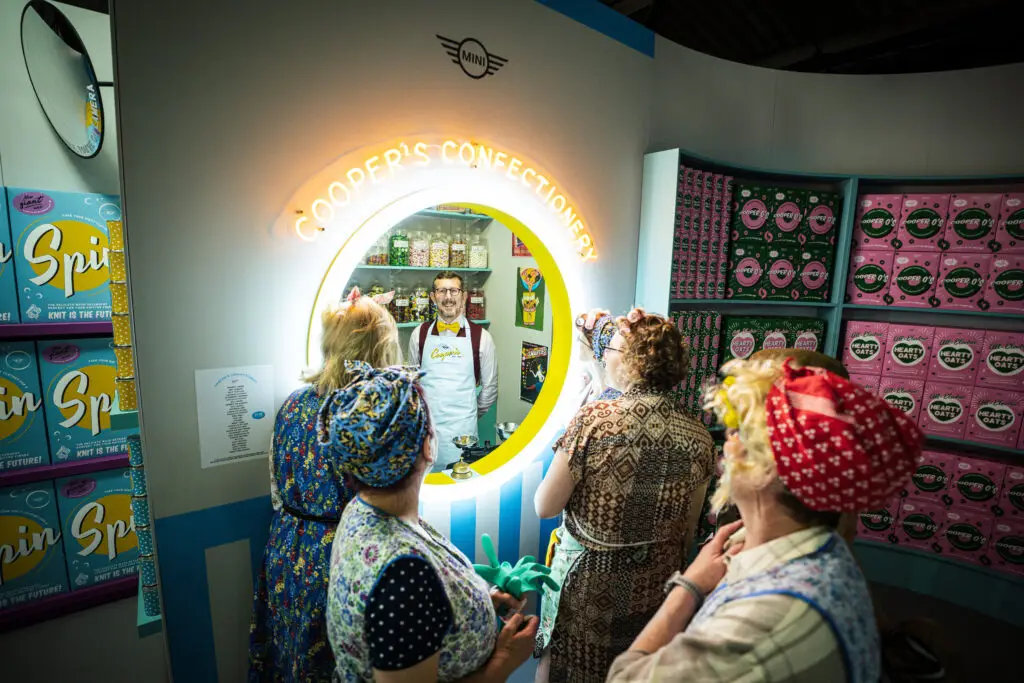
Netflix and Formula One have just released the sixth season of Drive to Survive – the hugely popular documentary that gives an exclusive behind the scenes look at the Formula One World Championship.
If we go off previous viewing figures, the new season is expected to attract even more interest. Drive to Survive has majorly impacted how people view Formula One – not only has it created more fans, the show has also tapped into a new audience demographic. The younger generation are tuning in due to the show’s accessibility and “unfiltered storytelling.”
Know your audience
So, what could the wider automotive industry learn from Formula One’s success?
The automotive industry is arguably going through a dramatic shift – it’s not only evolving tech wise (think electric and hybrid), it’s trying to figure out who exactly the next audience is, and more specifically, what they want when buying a vehicle.
All eyes are on the likes of Gen Z, who are considered as the next generation of luxury buyers (by 2030, they will represent 80% of global purchases). This audience is unique and unlike any other. Gen Z are socially and environmentally conscious, they care about brand values and authenticity – and of course, the experience.
‘The experience’ is what the automotive industry must now focus on. Nowadays, the products and technologies are evolving so rapidly that consumers are overwhelmed and they’re struggling to understand the key benefits. This has caused major brand disconnect, therefore, it’s crucial for brands to utilise experiences to clearly communicate their purpose.
But what’s the most effective way for experiences to happen? The answer: in-person.
Whilst Gen Z are described as “digital natives”, 80% of Gen Z drivers still want the opportunity to connect face to face, versus only 9% who prefer online interactions (according to a recent poll by Cars.com). Its editor-in-chief, Jenni Newman explained: “the younger generation care more about talking to people in-person when it comes to buying a big purchase like a car – valuing the role local car dealerships have in that last mile of car buying.”
Another audience that is front of mind is female buyers – the automotive industry has traditionally focused on male buyers – but this is now changing and diversifying.
The ambition to attract female consumers to buy cars has long been a target auto strategy, but brand experience and dealership comfort levels has generally followed a male dominated approach.
The need of diversifying the approach is becoming increasingly obvious as autos aim to build defined market segments that tie to certain auto models and key brand positionings.
This can be demonstrated by Genesis, who partnered with She’s Electric in 2023 to create an event series which aims to educate, inform and empower women in their EV buying journey.
The product connection for the audience extends beyond the traditional test drive trial and is better aligned with the use of a narrative, resulting in a deeper connection and sense of belonging.

Considering the above, how is the industry currently positioning their products to audiences, and are they doing it well enough?
We think:
It seems the industry could be missing a trick…
The automotive industry needs to take an evolved approach if it wants to successfully appeal to this new, emerging audience.
1) Make sure you’re on the right track
Gone are the days of showing potential buyers around the showroom. Audiences in 2024 want to be immersed in an experience, and more importantly – actively participate in it.
Try introducing test drives and demos to really ramp up the return on experience. Nothing is more memorable and meaningful to a buyer than sitting in the driving seat.
2) Build meaningful connections
Connecting your product to the customer’s lifestyle is critical; buyers want to feel seen and understood. Brands must leave the sale pitches at home and instead take a ‘household lifestyle’ approach to make a more meaningful sale.
Try recruiting staff from a diverse range of backgrounds, this will help them relate to your own diverse audience of buyers and really home in on their passions. Authenticity and relatability are key. Brands need to value the customer relationship as much as the product performance itself.
3) Re-evaluate your values
Create an event that reflects the brand, and the service customers can expect if they were to buy from you. Build on brand identity and make it clear what the USP’s are. Why is this brand different? For example, Genesis is all about Son-Nim (which means ‘our cherished guest’) so we have a heavy focus on hospitality and customer service at our test drive events, from the refreshments we offer guests, to how we address them on arrival.
3) Educate and empower
Take the focus off sales and create events that are there to engage and educate possible future prospects. They may not be in the market right now but when they do, they will remember the service and support you provided – it’s all about positive brand association.

Just look at F1 Arcade – a first of its kind full-motion racing simulator experience, that aims to “bring the excitement and emotion of the sport from the circuit to the city.” It’s been so successful in encouraging visitors to actively participate in the sport, it’s set to open more venues in the future.
Adam Breeden, co-founder of Puttshack, Flight Club and Bounce, helped create the experience and told The Independent: “The spectator experience is so profound that when you’re not racing, there’s a reason to be interested and engaged…it speaks to a core human instinct of competitiveness to be the fastest.”
Or Charlotte Tilbury, a beauty-brand who has just become the official 2024 partner of F1 ACADEMY, a programme that offers young female drivers the chance to race in Formula One, after all, 40% of F1 fans are now female. By sharing the same purpose: “to empower, inspire confidence, and encourage young women to chase their dreams”, the brand has not only expertly tapped into the female audience of the auto world, they’ve positioned themselves as a challenger brand – one that aims to stand by femininity in a traditionally male dominated space.
Lastly, fellow Omnicom agency The Drum, teamed up with CUPRA and Forza Horizon to create a ‘Next Gen Test Drive’ experience, which centred around gamification (one of Gen Z’s passions). The experience consisted of turning the cars into “digital, drivable cars with photo-realistic characteristics from the distinctive ‘chameleonic’ livery of the URBANREBEL.”
It’s clear that brands in 2024 must put their audience in the driving seat, in order to truly understand what they want and successfully attract them as a buying customer.
MANCHESTER
1st Floor, Canada House
Chepstow Street
Manchester
M1 5FW
NORWICH
Burton Road Business Park
Burton Road
Norwich
NR6 6AS
Member of Omnicom Experiential Group. © TRO 2023. All rights reserved